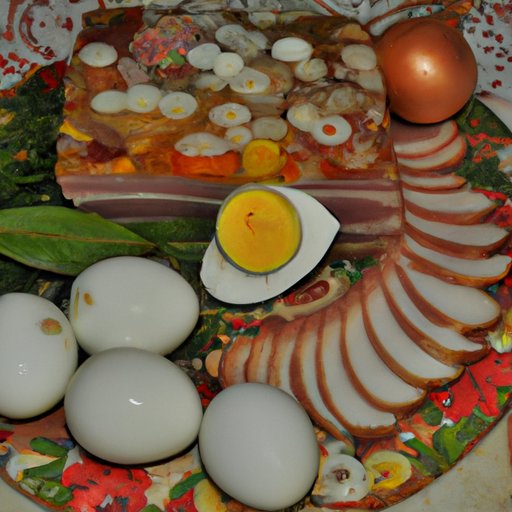Introduction
Home cooking is a term that is used to describe the food that is prepared in the home. It is usually associated with traditional recipes or dishes that have been passed down through generations. Home cooking can also refer to the type of food that is cooked on a regular basis in the home, such as family dinners or simple meals. In many cultures, home cooking is considered an important part of the daily routine and a way to bring people together.
The beauty of home cooking lies in its simplicity. There are no fancy ingredients or techniques involved, just simple recipes made with fresh ingredients. Home cooks often rely on their own intuition and creativity when creating dishes, making each meal unique and special. However, it can be difficult for novice home cooks to find the right recipes or to know what ingredients to use. This article will explore the various aspects of home cooking, from regional dishes to tips from experienced home cooks.
Interview Local Home Cooks
One of the best ways to learn more about home cooking is to talk to local home cooks. Ask them about the recipes they make, the stories behind them, and the regional dishes they prepare. Learn about the types of ingredients they use and the techniques they employ. You may even get some great new recipes or ideas to try out in your own kitchen.
It is also a good idea to ask home cooks what they think makes a dish “home cooked”. They may have different answers, but it can help you understand the importance of home cooking and how it differs from restaurant-style food. Their insights can also give you a better understanding of the regional cuisine of the area and the cultural influences that shape it.
Comparing Home Cooking Across Generations
Another interesting aspect of home cooking is how it has changed over time. Compare the dishes and recipes of different generations to see how tastes and preferences have evolved. Look at the traditional dishes from various countries and note the differences between them. See how modern ingredients and techniques have been incorporated into classic recipes. Doing this can provide insight into the evolution of home cooking and the impact of globalization.
It can also be interesting to compare home cooking across different cultures. See how different regions and countries have their own unique takes on traditional dishes. Understand how certain ingredients are used in different parts of the world and how regional dishes have been influenced by culture and history. By exploring the similarities and differences between home cooking in different parts of the world, you can gain a deeper appreciation for the variety of dishes available.

Tips and Tricks from Experienced Home Cooks
Experienced home cooks can also provide valuable advice when it comes to preparing meals. Ask them how they make their meals more flavorful and how they substitute ingredients. Find out which techniques they use to make their dishes stand out. Listen to their stories and take notes on the tips they share. These insights can help you become a better home cook and create delicious meals that everyone will enjoy.
Another thing to keep in mind is the importance of using fresh ingredients. Fresh produce, meat, fish, and dairy products all have unique flavors and textures that can make a dish more flavorful. When shopping for groceries, try to buy local and seasonal products whenever possible. This will ensure that you get the freshest ingredients and the most flavor out of your home-cooked meals.
Conclusion
Home cooking is a wonderful way to bring people together and create delicious meals. Through interviews with local home cooks, comparison of home cooking across generations and cultures, and tips from experienced home cooks, we can gain a greater appreciation for the art of home cooking. Whether you are a novice or an experienced home cook, these insights can help you create flavorful and unique dishes that everyone will love.


